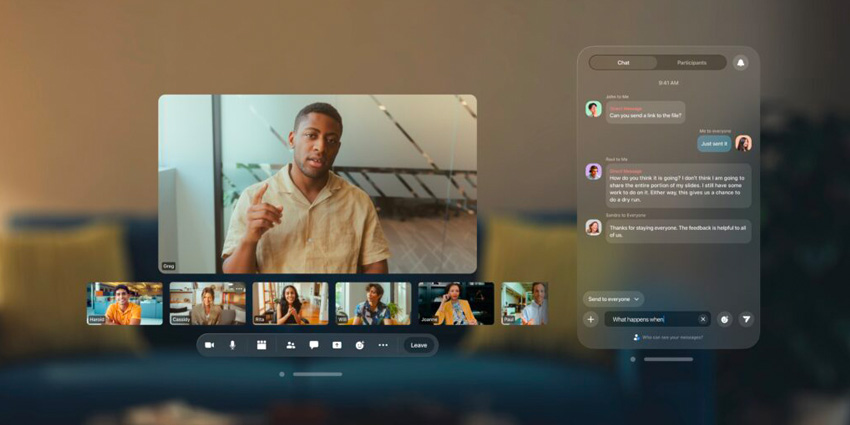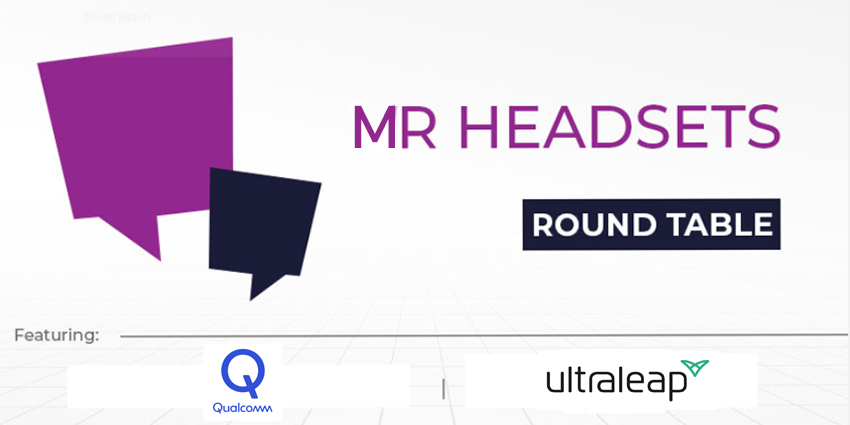This week, during an online speaker session, which included XR end-users and solutions providers, The VRAR Association (The VRARA) spoke on the real-world effectiveness of Meta’s recently launched business-ready headset management service.
The leading XR hardware and software vendor debuted Meta Quest for Business in November following a previous iteration and beta testing stages. However, following a lacklustre push towards workplace XR by way of the Pro headset, Meta is revamping its XR portfolio as an inclusive tool for harnessing the much-hype industrial Metaverse.
While Meta officials like the CEO Mark Zuckerberg and President of Global Affairs Nick Glegg assure that the firm’s XR portfolio is suited for businesses, it is up to the end-users of said solutions to decide.
The enterprise XR space is full of big-name competitors, all claiming that their immersive solutions will be the ones to take the future of work forward and into the present day.
The VRARA, however, are raising concerns over Meta’s enterprise (re)debut. During its online gathering, industry thought leaders and experts discussed how Meta’s “consumer-focused approach” could lead to poor-quality enterprise offerings.
Will Meta’s Consumer Focus Bring Down its Enterprise Vision?
According to the VRARA and its Global Executive Director Kris Kolo, Meta’s renewed dive into the business world – following the Quest Pro and other delves during the Oculus era – may be rife with issues.
Meta is an openly consumer-first XR solutions provider. The firm’s latest Connect showcase highlighted this clearly, focusing on gaming and consumer smart glasses.
Despite this consumer focus, Meta is keen to stay in the enterprise XR space as it develops a consumer portfolio. However, Meta may be making promises for the workplace without a strong product or development roadmap focused on providing XR at a standard that enterprise clients expect.
Notably, the VRARA expressed concerns over Meta device, data, and code security – apparently, Meta declined to answer requests from the VRARA concerning security for business adopters of its XR technology.
Moreover, security concerns are doubled partly due to the operational requirements for Meta-brand XR devices in the workplace.
Notably, the VRARA highlighted how workers must log in with a Meta account for individual headsets, and Quest devices also require WiFi hotspots in remote areas. Natively, Meta Quest for Business users need to sign in individually, leading to concerns over company data and privacy.
However, it should be noted that with Shared Mode – additional Meta Quest for Business paid content – enterprise clients are not required to sign in with a Meta account, therefore, in theory, negating the security concern. Nonetheless, security concerns arise for those operating headsets outside the paid-for Shared Mode.
Additional security concerns lead to some at the VRARA believing that the coding on Quest hardware – alongside connectivity concerns – can lead to potential backdoor hacking threats.
Security is a massive concern for XR’s enterprise clients. Increasingly, firms representing sensitive fields such as aviation, government, and healthcare are XR’s most notable modern-day adopters and drivers. Each vertical requires incredibly robust security measures to ensure workers, systems, and data are safe from predatory third parties.
If Meta cannot appease security concerns from end users, then other XR hardware vendors will take the firm’s place.
Notably, as the industrial Metaverse wave of 2024 approaches, many firms like Microsoft, AWS, and Meta are attempting to lead it. Microsoft and AWS are integrating many business-grade digital services and related security measures to ensure end-users feel safe adopting each vendor’s XR technology.
For example, Microsoft-brand XR services have found homes in major corporations such as Sanofi, Nexco East, and SNC-Lavalin – partially due to their existing security and application frameworks.
On the other hand, Meta is working on enterprise offerings in the portfolio – working with clients such as Alstom and Esade Executive Education. The firm also offers services like Microsoft Office and ShapesXR via its headset lineup, and Meta still supports its Pro headset for businesses.
More on Meta Quest for Business
Meta Quest for Business is a subscription service that supports enterprise users utilizing Meta Quest 2, 3 and Pro devices. Meta debuted the service in November, enabling clients to distribute devices and applications across their teams. Currently, the service is available to enterprise users in supported regions like the United States and the United Kingdom.
Meta Quest for Business offers the Shared Mode and Support Plus add-ons to enhance the service for enterprise clients. Shared Mode allows workers to participate without a Meta account, the long-standing concern with Meta entering the digital business solutions landscape.
Meta Quest for Business provides various XR workplace device management tools under its Admin portal. Team leaders can assign a Meta headset to an active subscription in order to manage and maintain it -while also assigning a Meta Quest device to a worker.
The admin portal also offers a team management hub that allows team leaders to assign accounts and devices with automation tools that streamline the process.
The service comes with a built-in MDM solution that gives team leaders direct control of their headset fleet, allowing team leaders to set bulk provisions, assign profiles, configure WiFi support, reset PIN access, review device status, and remote wipe devices.
Meta Quest for Business allows team leaders to manage XR applications and software distribution, giving them control over how Quest headset can access applications, such as deploying applications privately to a small group of users or making them available publicly as a widespread deployment – therefore streamlining the deployment of immersive applications by negating the device’s storefront to download applications individually.
While security and adoption concerns are fair play regarding Meta’s mixture of enterprise and consumer hardware, it appears that the firm and its leaders are taking the necessary steps to facilitate growth in each market.
Is Meta Serious About the Industrial Metaverse and Enterprise XR?
Nick Clegg posted a video in November promoting enterprise and education customers to leverage XR. The video came as the firm extensively advertises its portfolio as an avenue for end-users to access industrial Metaverse applications, including Meta Quest for Bussiness, which launched the same month.
In the promotional video, Clegg emphasized the potential of Metaverse technologies to transform work and education. He showcased how European companies use AR and VR to enhance industries and improve people’s lives.
Clegg also added:
European business leaders such as Lufthansa, Iveco, Alstorm, and Decathlon are already using immersive technologies to develop products, to train employees, and engage customers. – Others, like virtual medicine, are using Metaverse technologies in groundbreaking ways to support medical professionals, educators, and students in fully immersive digital environments. The impact of the Metaverse is real, and it’s happening today, right now. – As Metaverse technologies continue to progress, more and more opportunities will open up.
During the promotional video, Clegg highlighted the importance of laying the groundwork for the future industrial Metaverse based on the increasing talent pool, expanding knowledge bases, and exposure to new technologies.
Clegg explained that the impact of XR will only grow as more developers join and more educational/commercial institutions adopt the hardware. He also mentioned that as immersive technologies mature, they will help overcome cultural and economic barriers and create more business opportunities across Europe.
Furthermore, Meta aims to introduce many XR devices into homes during the 2023 holiday season to establish a foundational building block for introducing workplace XR. This consumer-focused strategy is designed to make headsets ubiquitous daily, with improved optics and familiarity. As a result, XR technologies will no longer seem overwhelming or difficult to understand when presented to workplace decision-makers – a similar approach that smartphone vendors took as they gained prominence as a workplace tool.







